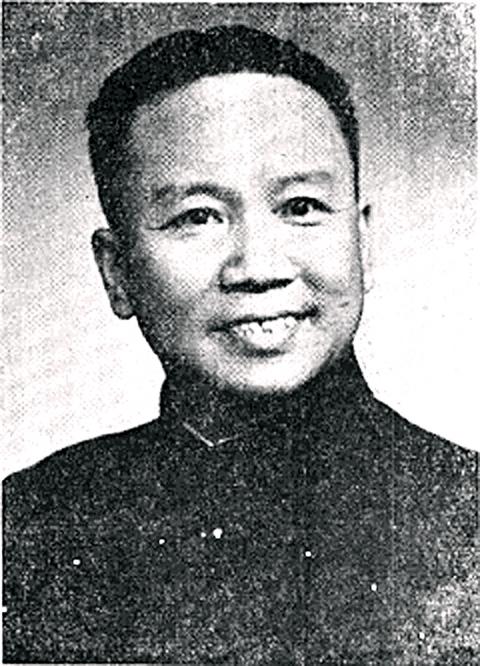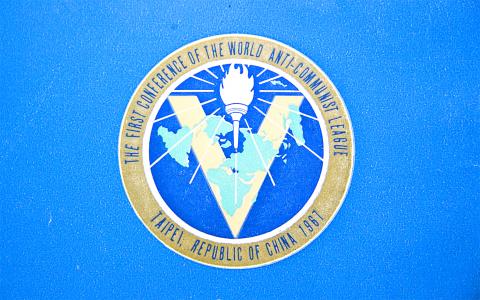Taiwan in Time: Sept. 21 to Sept. 27
After nearly a year of preparations, more than 230 delegates from 64 countries and regions descended upon Taipei on Sept. 25, 1967 to take part in the World Anti-Communist League’s (WACL) inaugural conference. Also in attendance were 12 anti-communist organizations and observers.
As a founding member of the league’s predecessor, the Asian People’s Anti-Communist League (APACL), Taiwan was chosen to host the event during a meeting to discuss the APACL’s expansion in November 1966.

Photo courtesy of Wikimedia Commons
A recap of the conference published by WACL stated that the league decided to meet in Taiwan because it was the “most resolute in its anti-communist position” and “showed the most vigorous anti-communist spirit.”
The APACL was started in 1954 by Chinese Nationalist Party (KMT) leader Chiang Kai-shek (蔣介石), Philippine president Elpidio Quirino and South Korean president Syngman Rhee.
By November 1966, as the APACL had expanded to Australia and Africa with 27 members, it decided to go global during a meeting in Seoul.

Photo: Han Cheung, Taipei Times
“To defeat the communist threat to the world, the anti-communist frontlines of the free people must be expanded to the entire world,” then-South Korean president Park Chung-hee announced during the opening ceremony.
Representatives from 11 countries and three anti-communist organizations met the following week and drafted the WACL charter, which took effect April 1967. The charter called for regional organizations in six regions: Asia, Middle East, Africa, Europe, North America and Latin America.
The charter clearly states that communists are “evil” beings who plan to “enslave the world” and anti-communists as “lovers of freedom,” with a mission to “push for true freedom based on justice and human dignity.”
Furthermore, it states that communist thought is “anti-humanity, anti-rationality, anti-society and anti-science” and can only bring disaster and pain to the world. To the league founders, co-existing with communists is no longer possible and they must be eradicated.
The first conference opened with Ku Cheng-kang (谷正綱) as both event and organization chairman. According to his biography, Ku, who was born in China, joined the KMT in 1924 and rose to the post of the Republic of China’s minister of social affairs. He followed Chiang to Taiwan after the KMT retreat in 1949, serving as minister of the interior and also becoming involved in Chinese refugee activities. Ku remained honorary chairman for the WACL until he died in 1993.
In a speech, Ku described Taiwan as “a lighthouse of freedom in the Pacific Ocean.”
“All anti-communists in the world now see Taiwan as an important stronghold, as a place to cultivate hope for the future,” he added. “A lot of attendees have never been to Taiwan before, but after seeing what we’re doing here, I’m sure they now have more courage and determination to continue the battle against the communists.”
The meeting officially began on the morning of Sept. 25 at the recently-completed Sun Yat-sen Hall (中山樓) in Yangmingshan (陽明山), with Chiang delivering the opening speech. Seven meetings were held over the next five days at the Ambassador Hotel (國賓飯店). Attendees worked on electing officials, approving new members, setting up committees, sharing reports on communist activities in various countries, devising anti-communist methods and denouncing communist ideals.
Taiwan representatives also screened a self-produced documentary and put together a photography exhibit, both depicting how terrible life in China was under communist rule.
During the closing ceremony on Sept. 29, Ku announced that the next meeting would be in Saigon — now Ho Chi Minh City.
“I want to invite everyone to the frontlines of the fight against communism,” he said. “I want everyone to witness or experience firsthand communist actions. We hope to, both spiritually and materially, help strike a fatal blow to communists worldwide.”
The league wasn’t without its controversies over the next decades, having been linked to neo-Nazis, anti-Semites and allegedly included people connected to war criminals and death squads.
In 1989, the end of the Cold War began as communist regimes in Europe started to collapse, highlighted by the fall of the Berlin Wall and the destabilization of the Soviet Union.
In response to the changing political scene, on Jan. 1, 1991, the league officially changed its name to the World League for Freedom and Democracy.
Taiwan in Time, a column about Taiwan’s history that is published every Sunday, spotlights important or interesting events around the nation that have anniversaries this week.

On April 26, The Lancet published a letter from two doctors at Taichung-based China Medical University Hospital (CMUH) warning that “Taiwan’s Health Care System is on the Brink of Collapse.” The authors said that “Years of policy inaction and mismanagement of resources have led to the National Health Insurance system operating under unsustainable conditions.” The pushback was immediate. Errors in the paper were quickly identified and publicized, to discredit the authors (the hospital apologized). CNA reported that CMUH said the letter described Taiwan in 2021 as having 62 nurses per 10,000 people, when the correct number was 78 nurses per 10,000

As we live longer, our risk of cognitive impairment is increasing. How can we delay the onset of symptoms? Do we have to give up every indulgence or can small changes make a difference? We asked neurologists for tips on how to keep our brains healthy for life. TAKE CARE OF YOUR HEALTH “All of the sensible things that apply to bodily health apply to brain health,” says Suzanne O’Sullivan, a consultant in neurology at the National Hospital for Neurology and Neurosurgery in London, and the author of The Age of Diagnosis. “When you’re 20, you can get away with absolute

May 5 to May 11 What started out as friction between Taiwanese students at Taichung First High School and a Japanese head cook escalated dramatically over the first two weeks of May 1927. It began on April 30 when the cook’s wife knew that lotus starch used in that night’s dinner had rat feces in it, but failed to inform staff until the meal was already prepared. The students believed that her silence was intentional, and filed a complaint. The school’s Japanese administrators sided with the cook’s family, dismissing the students as troublemakers and clamping down on their freedoms — with

As Donald Trump’s executive order in March led to the shuttering of Voice of America (VOA) — the global broadcaster whose roots date back to the fight against Nazi propaganda — he quickly attracted support from figures not used to aligning themselves with any US administration. Trump had ordered the US Agency for Global Media, the federal agency that funds VOA and other groups promoting independent journalism overseas, to be “eliminated to the maximum extent consistent with applicable law.” The decision suddenly halted programming in 49 languages to more than 425 million people. In Moscow, Margarita Simonyan, the hardline editor-in-chief of the